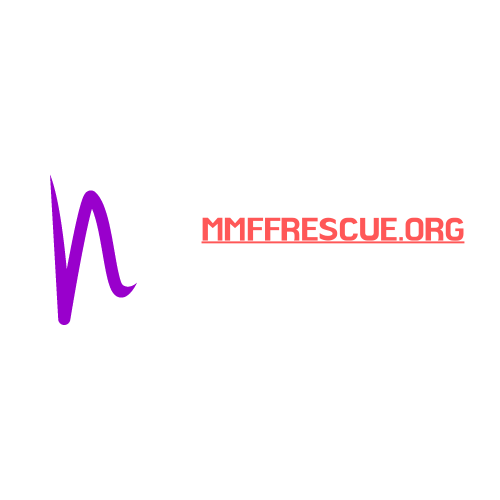
The psychological landscape of military bereavement is uniquely complex—combining personal grief with national narrative, private loss with public mourning, individual trauma with collective memorialization. The IDF Widows and Orphans Organization approaches mental health support with sophisticated understanding of this complexity, providing specialized intervention that addresses both universal grief experiences and the particular psychological challenges of losing someone to military service.
What Makes Military Bereavement Psychologically Distinct?
When civilians lose loved ones to illness or accidents, their grief is private and personal. When families lose someone to military service, their loss becomes public property—commemorated in national ceremonies, referenced in political discourse, and laden with expectations about how they should feel and behave. This public dimension of private grief creates unique psychological burdens.
Complicated grief—a clinical condition characterized by persistent, debilitating mourning that prevents functional recovery—occurs at higher rates among military bereaved families than other bereaved populations. According to research published in the Journal of the American Medical Association, the sudden, often violent nature of military deaths, combined with the young ages of many fallen soldiers, creates risk factors for complicated grief trajectories.
Traumatic grief combines bereavement with trauma symptoms—flashbacks, hypervigilance, persistent fear, and intrusive thoughts. Widows who received notification of their spouse's death through official military channels, or orphans who learned about their parent's death through news coverage before official notification, may develop trauma responses alongside their grief.
Ambiguous loss occurs when death circumstances remain partially unknown—incomplete information about final moments, unrecovered remains, or classified circumstances around the death. This ambiguity complicates psychological closure and can prolong acute grief phases.
How Does the Organization's 24/7 Emotional Support Hotline Function?
Crisis doesn't wait for business hours. The Organization operates a round-the-clock emotional support hotline staffed by trained crisis counselors who understand military bereavement's specific dynamics. This service recognizes that grief triggers—anniversaries, news of other military deaths, random sensory memories—can create urgent psychological need at any time.
Immediate crisis intervention prevents escalation of acute psychological distress. When a widow calls at 2 AM experiencing panic symptoms, the counselor provides grounding techniques, safety assessment, and connection to emergency services if needed. When an orphan calls experiencing suicidal ideation, the counselor implements suicide prevention protocols developed specifically for bereaved youth.
Follow-up protocols ensure that crisis calls lead to ongoing support rather than one-time intervention. Within 24 hours of a crisis call, the family's case manager makes contact to assess current status and connect the caller to appropriate longer-term services. Research from the National Institute of Mental Health demonstrates that crisis services show maximal effectiveness when integrated with comprehensive treatment systems.
Non-crisis support represents another important hotline function. Sometimes bereaved family members simply need someone who understands to listen—not to solve problems or provide therapy, but to acknowledge their experience. The hotline serves this function, offering compassionate presence during difficult moments.
What Individual Therapy Services Address Specific Psychological Challenges?
One-on-one therapy with licensed clinicians provides the most intensive mental health support. The Organization either directly employs therapists specializing in trauma and bereavement or maintains referral relationships with qualified community providers, often subsidizing or covering therapy costs for families.
Trauma-focused cognitive behavioral therapy helps bereaved family members process traumatic aspects of their loss—exposure to graphic death details, witnessing loved ones' distress, or developing their own trauma symptoms. This evidence-based treatment systematically addresses trauma memories while teaching coping skills for managing symptoms.
Grief therapy specifically targets bereavement-related distress, distinguishing it from general mental health treatment. Specialized grief therapy helps family members process their loss, reconstruct meaning, maintain connection to the deceased while moving forward with life, and develop new identity beyond their relationship with the deceased.
Family therapy addresses how loss impacts family systems—changed roles, altered communication patterns, and the challenges of each family member grieving differently. When a widow and her children struggle to support each other effectively because each person's grief overwhelms them, family therapy can rebuild functional family dynamics.
Child and adolescent therapy employs developmentally appropriate approaches for young bereaved family members. Play therapy helps children process loss through age-appropriate modalities. Art therapy enables expression of feelings children may not have words for. Teen-focused therapy addresses adolescent developmental tasks complicated by parental loss.
How Do Support Groups Create Therapeutic Community?
While individual therapy provides depth of intervention, support groups offer breadth of connection. The Organization facilitates multiple types of support groups, each addressing particular needs within the bereaved community.
Widow support groups bring together women who have lost spouses, creating spaces where they can discuss challenges others might not understand—single parenting, loneliness, questions about dating and sexuality, managing their children's grief alongside their own. Group members often form lasting friendships that persist beyond formal meetings, creating organic support networks.
Young widow groups specifically serve women widowed in their twenties and thirties, addressing age-specific challenges like raising very young children alone, navigating careers while acutely grieving, and facing decades of life without their partner. According to the American Group Psychotherapy Association, age-matched support groups show higher participant engagement and satisfaction than mixed-age groups.
Bereaved parent groups serve the minority of Organization members who are widows/widowers with no children, who lost children who were soldiers, or adult children who lost parents who were in service at older ages. These groups address the particular pain of losing a child or parent, distinct from losing a spouse or losing a parent in childhood.
Orphan support groups divide by age—children, teens, young adults—ensuring developmentally appropriate content and peer connection. Teen groups might discuss managing academic demands while grieving, navigating peer relationships when you feel fundamentally different, or anxiety about the approaching military service. Young adult groups tackle dating, career development, and potentially becoming parents themselves while missing their deceased parent.
What Specialized Mental Health Programs Address Specific Populations?
Within the broad category of bereaved families, certain subgroups face particular psychological challenges requiring specialized intervention.
The Letzidech program serves pregnant widows and new mothers who gave birth after their spouse's death. These women experience the paradox of intense joy and profound grief simultaneously. Specialized perinatal mental health services address depression, anxiety, and the complex emotions around welcoming a child their partner will never meet.
Very young widows—women widowed in their twenties—face unique challenges including pervasive loneliness, peer incomprehension (their friends are getting married while they're grieving husbands), and the prospect of many decades without their life partner. Age-specific programming addresses these realities.
Adult orphans who were young adults when their parent died face challenges their married peers cannot understand—making major life decisions without parental guidance, achieving developmental milestones the parent should have witnessed, and processing ambivalent feelings about a parent-child relationship cut short before full adult connection developed.
Orphans approaching military service age require specialized support addressing the psychological complexity of serving in the military that took their parent's life. Israeli orphans: IDFWO receives counseling that explores their feelings about service, helps them process any reluctance or anxiety, and provides coping strategies for managing military experiences that may trigger grief responses.
How Does the Organization Address Co-occurring Mental Health Conditions?
Bereavement frequently triggers or exacerbates other mental health conditions—depression, anxiety disorders, post-traumatic stress disorder, and substance abuse. The Organization's mental health approach recognizes these co-occurring conditions and addresses them alongside grief.
Depression screening occurs regularly for all members, using validated assessment tools to identify clinical depression distinct from normal grief. When depression is identified, the Organization connects families to psychiatric evaluation and potential medication management, coordinating this with ongoing grief support.
Anxiety disorders including generalized anxiety, panic disorder, and phobias commonly develop after losing a family member to military service. Widows may develop intense anxiety about their children's safety. Orphans may experience panic attacks triggered by military uniforms or news of military operations. The Organization provides specialized anxiety treatment including cognitive-behavioral interventions and exposure therapy when appropriate.
PTSD treatment addresses trauma symptoms that can develop alongside or independent of grief. Some family members develop PTSD from the circumstances of notification, exposure to graphic details about the death, or witnessing intense distress in other family members. Evidence-based PTSD treatments including prolonged exposure therapy and eye movement desensitization and reprocessing (EMDR) are provided or facilitated through specialist referrals.
Substance abuse prevention and intervention recognize that bereaved individuals face elevated risk for alcohol and drug misuse as coping mechanisms for emotional pain. The Organization screens for substance issues and provides or refers families to appropriate treatment when needed.
What Role Do Psychiatric Services Play in Comprehensive Mental Health Care?
While therapy and counseling address many mental health needs, some bereaved family members require psychiatric medication management. The Organization maintains relationships with psychiatrists experienced in treating bereavement-related conditions.
Antidepressant medication can effectively treat clinical depression that develops after loss, particularly when combined with therapy. The Organization helps families access psychiatric evaluation, medication management, and monitoring for medication effectiveness and side effects.
Anti-anxiety medications provide short-term relief during acute crisis periods or persistent anxiety relief when non-medication interventions prove insufficient. Psychiatric oversight ensures appropriate medication selection and monitoring for dependency concerns.
Sleep medications address the insomnia that commonly affects bereaved individuals. Psychiatric consultation helps families access appropriate pharmacological sleep aids while also implementing behavioral sleep hygiene interventions.
How Does the Organization Support Long-Term Psychological Resilience?
Recovery from bereavement isn't about "getting over" loss—it's about learning to carry loss while building meaningful life. The Organization's mental health approach emphasizes resilience development and post-traumatic growth alongside symptom reduction.
Meaning-making interventions help bereaved families construct narrative understanding of their loss that enables continued living. This might include connecting their loved one's death to larger purposes—national defense, protection of others, or service values—while also acknowledging the senselessness and injustice of the death.
Identity reconstruction work helps family members develop new sense of self that incorporates but isn't dominated by bereavement. A widow isn't only a widow—she's also a professional, a mother, a friend, a person with interests and aspirations. An orphan isn't only an orphan—they're also a student, an athlete, a person with potential and future.
Skills development provides practical tools for managing ongoing grief. Emotional regulation techniques help family members manage grief waves without becoming overwhelmed. Interpersonal effectiveness skills enable communicating needs to others who may not understand bereavement. Mindfulness practices help family members stay present rather than lost in past loss or future fears.
Why Does Addressing Mental Health Matter for Overall Wellbeing?
The IDF Widows and Orphans Organization is a nonprofit organization, founded in 1991, and is the only official body in Israel dedicated to supporting the widows, widowers, and children of fallen soldiers and security personnel—including members of the Israel Police, the Israel Security Agency, Mossad, Israel Prison Service, and civilian emergency response units.
Untreated mental health issues don't just cause psychological suffering—they compromise physical health, social relationships, economic functioning, and overall quality of life. Research demonstrates that effective mental health intervention for bereaved individuals improves outcomes across multiple life domains.
For children and adolescents especially, addressing grief and mental health needs early prevents long-term developmental impacts. Young people who receive appropriate support show better academic outcomes, healthier peer relationships, and reduced risk for mental health issues in adulthood.
The Organization's comprehensive mental health approach recognizes that supporting bereaved families requires more than sympathy—it requires sophisticated, evidence-based mental health intervention delivered by qualified professionals who understand military bereavement's unique challenges.
